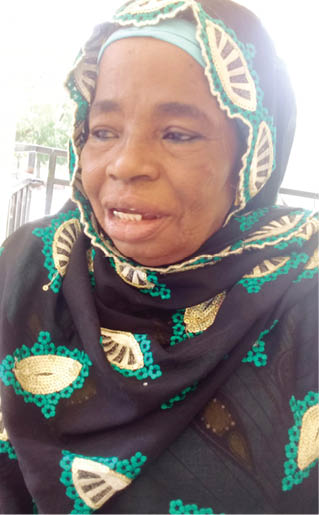Women in Sokoto are increasingly contributing an appreciable share in the agricultural sector of the state. With over 19,000 female farmers across Sokoto State, women are enhancing their livelihoods and economic empowerment. For many of them, farming is essential for their survival.
Hajiya Maryam Mohammed Kende, a large scale farmer and chairperson of the All Farmers Association of Nigeria (AFAN), Sokoto State chapter said, “90% of what I possess today is from farming.”
Hajiya Maryam who produces over 200 sacks of rice, 70 sacks of onion, 30 sacks of millet, guinea corn and groundnut, especially from dry season farming, believes women are more versatile in the agriculture sector.
“Though men are known to dominate the agricultural sector, but women are more in tandem with the various farming processes. Men only plant and harvest, but women cultivate, thresh, pound, and make food from the varieties available, hence they are more at home with food crops control,” she said.
Hajiya Maryam has been a driving force in ensuring other women embrace agriculture.
“We encourage women to come into agriculture by inviting them to work for us during or after harvest. From there, they realize the enormous benefits we are getting from it, and start their own, thereby increasing the number of females in the sector,” she also said.
She disclosed that the number of women in agriculture in Sokoto has continued to rise.
Another female farmer, Malama Aisha confirmed saying: “I was attracted to agriculture after I saw how other women were really making progress in farming. Those who had been into it persuaded many of us of the desirability of going into agriculture and we are grateful for that.”
Aisha who is into onion and cassava farming, described farming as valuable and worthwhile.
“I can now boost of being self-sufficient with what I have got from farming,” she asserted.
Another female farmer, Fatima Yusuf, 48, revealed that she started with livestock rearing under AFAN, and then ventured into poultry after a brief farming activity that saw her harvesting cassava, wheat and rice all under the Anchor Borrower Programme.
“It is the same Anchor Borrower Programme that I used to start the poultry business with 70 chickens at N150,000. Now I have 200 chickens, if all them survive I can realize up to N50,000 profit,” Fatima said.
She advised women to be self-reliant by going into farming or petty businesses to support their families.
Many female farmers said, hitherto, they relied solely on her husbands but that now they have gained financial independence.
Hajiya Maryam recalled that at the initial stage of her attempt into farming, they had a body, the Nigeria Cooperative Women Alliance, which was a stepping stone to getting registered with AFAN, and later the Rice Farmers Association of Nigeria RIFAN, in which she is a renowned member.
“We also try to get loans, which 70% of women farmers need, and the current administration of President Muhammadu Buhari has really assisted in making farming an alternative way of getting out of the prevailing economic difficulty.”
She noted that the 2017/2018 session saw over 48,000 farmers getting support in Sokoto State. “That was from the various government’s farming programmes initiated by the present administration. 2015 was the best year for me in terms of the bumper harvest I recorded in rice production.”
However, the women also shared the challenges they face in the sector.
They also noted gender bias at association meetings as men dominated virtually all activities and thereby undermined the right of women to make significant contributions to decision making.
The female farmers also complain that the labourers they employed to work on their farms often duped them, especially during harvest period.
Despite the challenges, however, the women remain resolute in their commitment to agriculture. Hajiya Maryam, a civil servant, said despite the challenges encountered, she was getting more from farming that office work.
“Women should not be intimidated,” she emphasized. “They should come out and embrace farming which is rewarding and ensures self-reliance.”

 Join Daily Trust WhatsApp Community For Quick Access To News and Happenings Around You.
Join Daily Trust WhatsApp Community For Quick Access To News and Happenings Around You.


